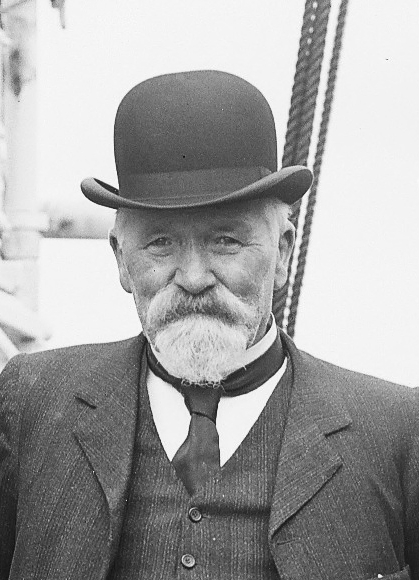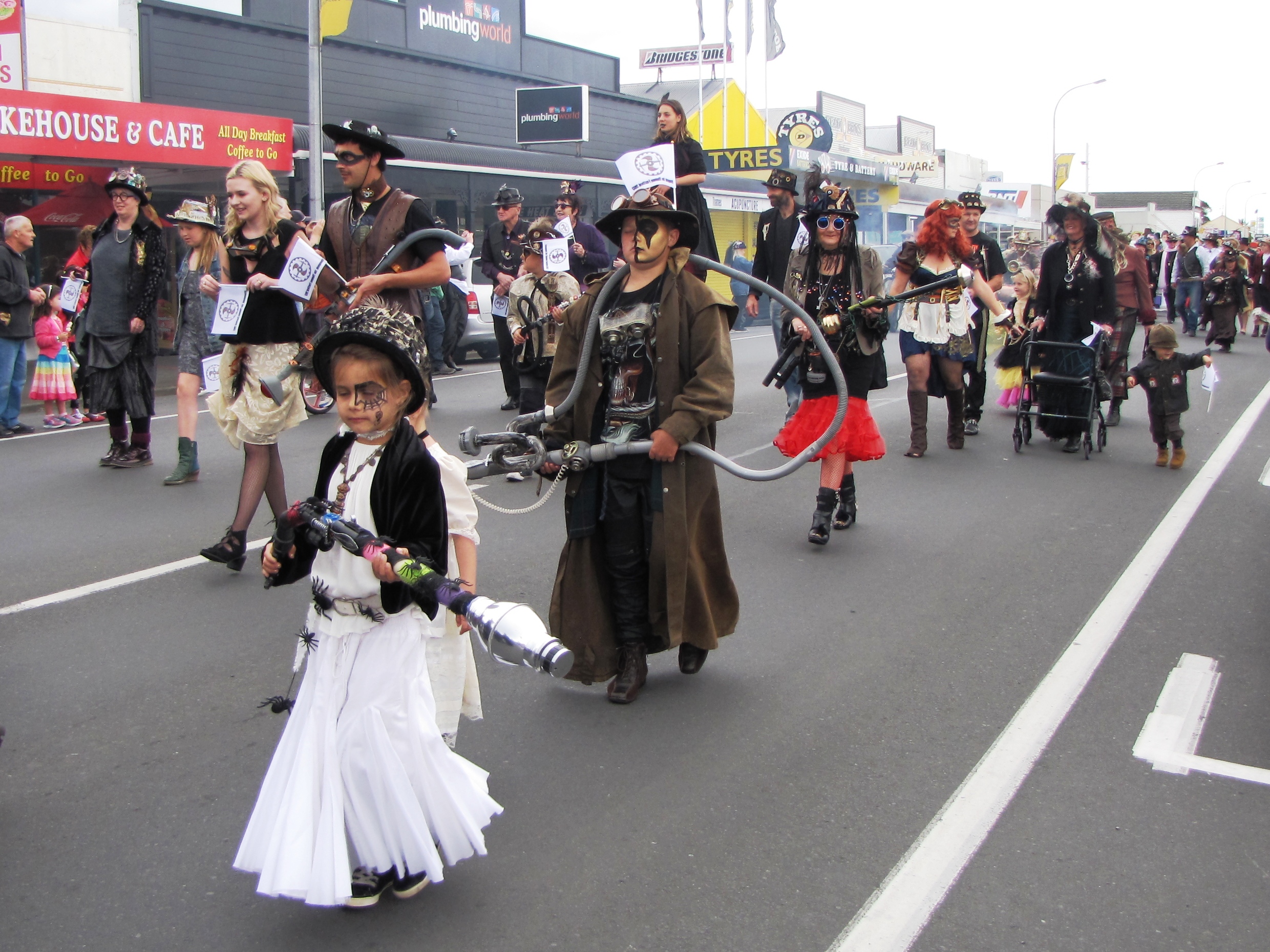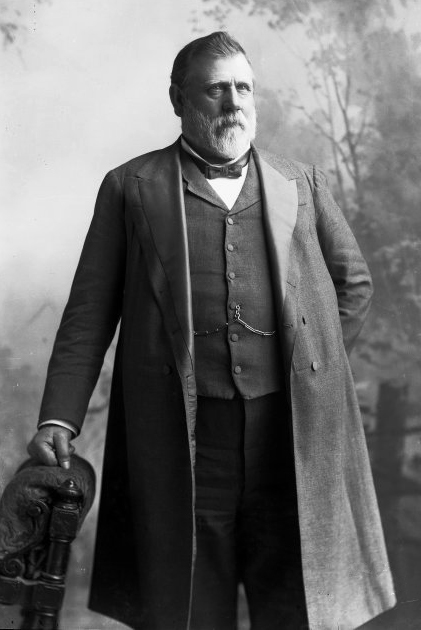|
James McGowan (politician)
James McGowan (1841 – 7 May 1912) was a New Zealand politician of the Liberal Party. Biography McGowan was born in Maxwell's Court, County Down, Ireland, in 1841. He emigrated to Auckland in 1865 on the ship ''Liverpool''. After five years, he moved to Thames, where he had a large store and a bakery. Political career He was Mayor of Thames in 1889, and in 1892–1893. He represented the Thames electorate in Parliament from an 1893 by-election. The by-election was caused after the resignation of Liberal Party MP Alfred Cadman. The Liberals selected the incumbent Mayor of Thames, James McGowan as their candidate for Cadman's seat. After a large public gathering, it was decided not to run another candidate against McGowan in light of a general election being only months away, resulting in McGowan being elected unopposed. From 1896 until 1900 he was the Liberal Party's junior whip. He was Minister of Justice and Minister of Mines from 23 January 1900 in the Liberal ... [...More Info...] [...Related Items...] OR: [Wikipedia] [Google] [Baidu] |
The Honourable
''The Honourable'' (British English) or ''The Honorable'' (American English; see spelling differences) (abbreviation: ''Hon.'', ''Hon'ble'', or variations) is an honorific style that is used as a prefix before the names or titles of certain people, usually with official governmental or diplomatic positions. Use by governments International diplomacy In international diplomatic relations, representatives of foreign states are often styled as ''The Honourable''. Deputy chiefs of mission, , consuls-general and consuls are always given the style. All heads of consular posts, whether they are honorary or career postholders, are accorded the style according to the State Department of the United States. However, the style ''Excellency'' instead of ''The Honourable'' is used for ambassadors and high commissioners. Africa The Congo In the Democratic Republic of the Congo, the prefix 'Honourable' or 'Hon.' is used for members of both chambers of the Parliament of the Democratic Repu ... [...More Info...] [...Related Items...] OR: [Wikipedia] [Google] [Baidu] |
William Plunket, 5th Baron Plunket
William Lee Plunket, 5th Baron Plunket (19 December 1864 – 24 January 1920) was a British diplomat and administrator. He was Governor of New Zealand from 1904 to 1910. Early life Born in Dublin, he was educated at Harrow and Trinity College Dublin. His parents were William, 4th Lord Plunket, the archbishop of Dublin in 1884–97, and his wife Anne, the daughter of Sir Benjamin Guinness. He entered the Diplomatic Service and was sent to Rome in 1889 as an attaché to the British Embassy there. In 1892, he was appointed in the same position to the embassy in Constantinople, and finally retired two years later. Career Having succeeded his father as fifth Baron Plunket in 1897, Plunket three years later became private secretary to Lord Cadogan, Lord Lieutenant of Ireland at the time, and fulfilled the same role for his successor Lord Dudley, when he was appointed to the position in August 1902. He was appointed CVO and KCVO in 1900 and 1903 respectively, and in 1904 he ... [...More Info...] [...Related Items...] OR: [Wikipedia] [Google] [Baidu] |
1902 New Zealand General Election
The 1902 New Zealand general election was held on Tuesday, 25 November, in the general electorates, and on Monday, 22 December in the Māori electorates to elect a total of 80 MPs to the 15th session of the New Zealand Parliament. A total number of 415,789 (76.7%) voters turned out to vote. The Rev Frank Isitt was nominated as the Prohibitionist candidate for ten separate electorates, and came second in eight. Another candidate, David Whyte, was nominated for two. Both men stood to ensure that a local liquor licensing poll was held in each electorate for which they were nominated. 1902 electoral redistribution The Representation Act 1900 had increased the membership of the House of Representatives from general electorates 70 to 76, and this was implemented through the 1902 electoral redistribution. In 1902, changes to the country quota affected the three-member electorates in the four main centres. The tolerance between electorates was increased to ±1,250 so that the Represent ... [...More Info...] [...Related Items...] OR: [Wikipedia] [Google] [Baidu] |
1899 New Zealand General Election
The 1899 New Zealand general election was held on 6 and 19 December in the European and Māori electorates, respectively, to elect 74 MPs to the 14th session of the New Zealand Parliament. The election was again won by the Liberal Party, and Richard Seddon remained Prime Minister. 1896 electoral redistribution The last electoral redistribution was undertaken in 1896 for the , and the same electorates were used again. 34 seats were located in the North Island, 36 were in the South Island, and the remaining four were Māori electorates. Since the 1890 electoral redistribution, the four main centres had electorates with three seats each. The election The 1899 election was held on Wednesday, 6 December in the general electorates, and on Tuesday, 19 December in the Māori electorates to elect a total of 74 MPs to the 14th Parliament. A total number of 373,744 (77.6%) voters turned out to vote. In three electorates there was only one candidate, and they were thus returned unopposed. Tw ... [...More Info...] [...Related Items...] OR: [Wikipedia] [Google] [Baidu] |
1896 New Zealand General Election
The 1896 New Zealand general election was held on Wednesday, 4 December in the general electorates, and on Thursday, 19 December in the Māori electorates to elect a total of 74 MPs to the 13th session of the New Zealand Parliament. A total number of 337,024 (76.1%) voters turned out to vote. 1896 was the year the limit of £200 was placed on each candidate's campaign spending. Background The Liberal government campaigned on a platform that the election was between the people and the "selfish few". The economy stagnated, raising unemployment, which caused support for the Liberals to fall in the cities and they lost many seats, though not enough to be removed from office by the Conservatives. In rural areas, the swing in support was not as large due to the public works and land settlement programmes helping to support the regions. In June 1896 Seddon had replaced Joseph Ward as Finance Minister whilst the latter had resigned after being declared temporarily bankrupt. As such Seddo ... [...More Info...] [...Related Items...] OR: [Wikipedia] [Google] [Baidu] |
1893 New Zealand General Election
The 1893 New Zealand general election was held on 28 November and 20 December in the European and Māori electorates, respectively, to elect 74 MPs to the 12th session of the New Zealand Parliament. The election was won by the Liberal Party, and Richard Seddon became Prime Minister. 1893 was the year universal suffrage was granted to women over 21 (including Māori), plural registration was abolished, plural voting for Māori property-owners was abolished, and only those whose descent was exactly half Māori were allowed to choose whether to vote in European or Māori electorates. Women's suffrage was the most consequential change. 1892 electoral redistribution The previous electoral redistribution was undertaken in 1890 for the . The 1891 New Zealand census was the first to automatically trigger an electoral redistribution, which was undertaken in 1892. The population drift to the North Island resulted in the transfer of one electorate from the south to the north. Only three el ... [...More Info...] [...Related Items...] OR: [Wikipedia] [Google] [Baidu] |
1893 Thames By-election
The Thames by-election of 1893 was a by-election held during the 11th New Zealand Parliament in the electorate of . Background The by-election was caused after the resignation of Liberal Party MP Alfred Cadman Sir Alfred Jerome Cadman (17 June 1847 – 23 March 1905) was a New Zealand politician of the Liberal Party. He was the Minister of Railways from 1895 to 1899 in the Liberal Government. Early life Cadman was born in Sydney, Australia, in 1847 .... The Liberals selected the incumbent Mayor of Thames, James McGowan as their candidate for Cadman's seat. After a large public gathering, it was decided not to run another candidate against McGowan in light of a general election being only months away, resulting in McGowan being elected unopposed. References Thames 1893 1893 elections in New Zealand {{NewZealand-election-stub ... [...More Info...] [...Related Items...] OR: [Wikipedia] [Google] [Baidu] |
The Cyclopedia Of New Zealand
''The Cyclopedia of New Zealand: industrial, descriptive, historical, biographical facts, figures, illustrations'' was an encyclopaedia published in New Zealand between 1897 and 1908 by the Cyclopedia Company Ltd. Arthur McKee was one of the original directors of the company that published ''The Cyclopedia'', and his business partner H. Gamble worked with him on the first volume. Six volumes were published on the people, places and organisations of provinces of New Zealand. The ''Cyclopedia'' is an important historical resource. The volumes are arranged geographically, with each volume concerned with a specific region of New Zealand. Its breadth of coverage of many small towns and social institutions were poorly covered by contemporary newspapers and other sources. The first volume, which covered Wellington, also included the colonial government, politicians, governors, and public servants. The first volume was produced in Wellington, and the remaining volumes were produced in Chri ... [...More Info...] [...Related Items...] OR: [Wikipedia] [Google] [Baidu] |
Thames, New Zealand
Thames () ( mi, Pārāwai) is a town at the southwestern end of the Coromandel Peninsula in New Zealand's North Island. It is located on the Firth of Thames close to the mouth of the Waihou River. The town is the seat of the Thames-Coromandel (district), New Zealand, Thames-Coromandel District Council. The Māori people, Māori iwi are Ngāti Maru (Hauraki), Ngāti Maru, who are descendants of Marutuahu's son Te Ngako. Ngāti Maru is part of the Ngati Marutuahu confederation of tribes or better known as Hauraki Iwi. Thames had an estimated population of 15,000 in 1870, but this declined to 4,500 in 1881, and it has increased modestly since. It is still the biggest town on the Coromandel. Until 2016, a historical Oak, oak tree that was planted by Governor George Grey stood on the corner of Grey and Rolleston streets. Demographics Thames covers and had an estimated population of as of with a population density of people per km2. Thames had a population of 7,293 at the 2018 Ne ... [...More Info...] [...Related Items...] OR: [Wikipedia] [Google] [Baidu] |
Auckland
Auckland (pronounced ) ( mi, Tāmaki Makaurau) is a large metropolitan city in the North Island of New Zealand. The List of New Zealand urban areas by population, most populous urban area in the country and the List of cities in Oceania by population, fifth largest city in Oceania, Auckland has an urban population of about It is located in the greater Auckland Region—the area governed by Auckland Council—which includes outlying rural areas and the islands of the Hauraki Gulf, and which has a total population of . While European New Zealanders, Europeans continue to make up the plurality of Auckland's population, the city became multicultural and Cosmopolitanism, cosmopolitan in the late-20th century, with Asian New Zealanders, Asians accounting for 31% of the city's population in 2018. Auckland has the fourth largest Foreign born, foreign-born population in the world, with 39% of its residents born overseas. With its large population of Pasifika New Zealanders, the city is ... [...More Info...] [...Related Items...] OR: [Wikipedia] [Google] [Baidu] |
New Zealand Liberal Party
The New Zealand Liberal Party was the first organised political party in New Zealand. It governed from 1891 until 1912. The Liberal strategy was to create a large class of small land-owning farmers who supported Liberal ideals, by buying large tracts of Māori land and selling it to small farmers on credit. The Liberal Government also established the basis of the later welfare state, with old age pensions, developed a system for settling industrial disputes, which was accepted by both employers and trade unions. In 1893 it extended voting rights to women, making New Zealand the first country in the world to enact universal adult suffrage. New Zealand gained international attention for the Liberal reforms, especially how the state regulated labour relations. It was innovating in the areas of maximum hour regulations and compulsory arbitration procedures. Under the Liberal administration the country also became the first to implement a minimum wage and to give women the right ... [...More Info...] [...Related Items...] OR: [Wikipedia] [Google] [Baidu] |
United Kingdom Of Great Britain And Ireland
The United Kingdom of Great Britain and Ireland was a sovereign state in the British Isles that existed between 1801 and 1922, when it included all of Ireland. It was established by the Acts of Union 1800, which merged the Kingdom of Great Britain and the Kingdom of Ireland into a unified state. The establishment of the Irish Free State in 1922 led to the remainder later being renamed the United Kingdom of Great Britain and Northern Ireland in 1927. The United Kingdom, having financed the European coalition that defeated France during the Napoleonic Wars, developed a large Royal Navy that enabled the British Empire to become the foremost world power for the next century. For nearly a century from the final defeat of Napoleon following the Battle of Waterloo to the outbreak of World War I, Britain was almost continuously at peace with Great Powers. The most notable exception was the Crimean War with the Russian Empire, in which actual hostilities were relatively limited. How ... [...More Info...] [...Related Items...] OR: [Wikipedia] [Google] [Baidu] |


.jpg)


_p225_AUCKLAND%2C_NEW_ZEALAND.jpg)
